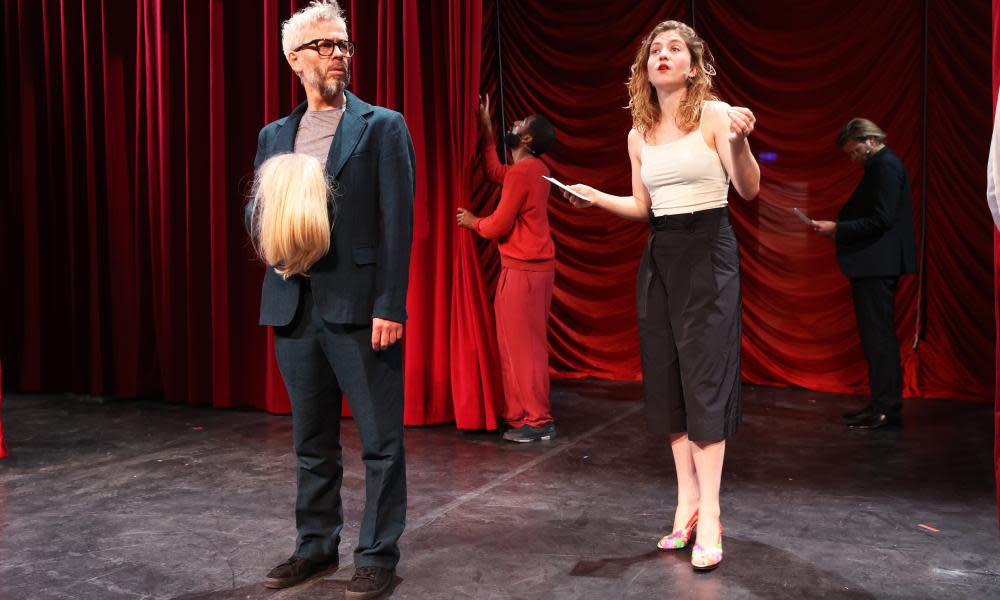Every Word Was Once an Animal review – this is head-spinning theatre

This is not the start of the review. The start will come later. This bit is to grab your attention. It is to make you intrigued about Every Word Was Once an Animal and to wonder why it was cancelled on 5 April. Was it cancelled on 5 April? You shouldn’t believe everything you read. Lots of shows have been cancelled over the past couple of years. Maybe it was one of them. Anyway it is happening now.
This is more like the start of the review. It is the part where I tell you what is going on. Every Word Was Once an Animal is the new show by Ontroerend Goed, the maverick Belgian company that is big on playful deconstruction.
It is full of stops and starts. The five actors, taking turns behind the microphone, give a running commentary on where we are. They break off to tell stories about off-stage characters called Bob and Emma, who might be the same person and might not exist. They frequently contradict each other – and just as frequently contradict themselves. It is head-spinning and very funny.
In this part of the review, I give you some contextual analysis. I will tell you how director Alexander Devriendt often creates the effect of a well-made play, but never stages anything like a well-made play. In this one, he strips the play down to its essential elements, like the constituent layers of an onion (onions figure prominently). There’s the start and the lights and the curtains and the unreliable narrators and eventually there is the end.
It is also self-referential. In its moments of linguistic breakdown, it recalls the backwards speech of their palindromic show Are We Not Drawn Onward to New ErA. A surprise delivery reminds you of the letter sent to you after Internal and the direct address harks back to Audience.
This is the end of the review where I try to say something brainy to sum up. I’ll say it sounds confusing, but the confusion is part of the fun; or it sounds too meta for its own good, but that is in keeping with the festival spirit; or it says something about finding certainty in a post-truth world, but perhaps it is too slippery even for that.
At Zoo Southside, Edinburgh, until 28 August.

 Yahoo Movies
Yahoo Movies 
